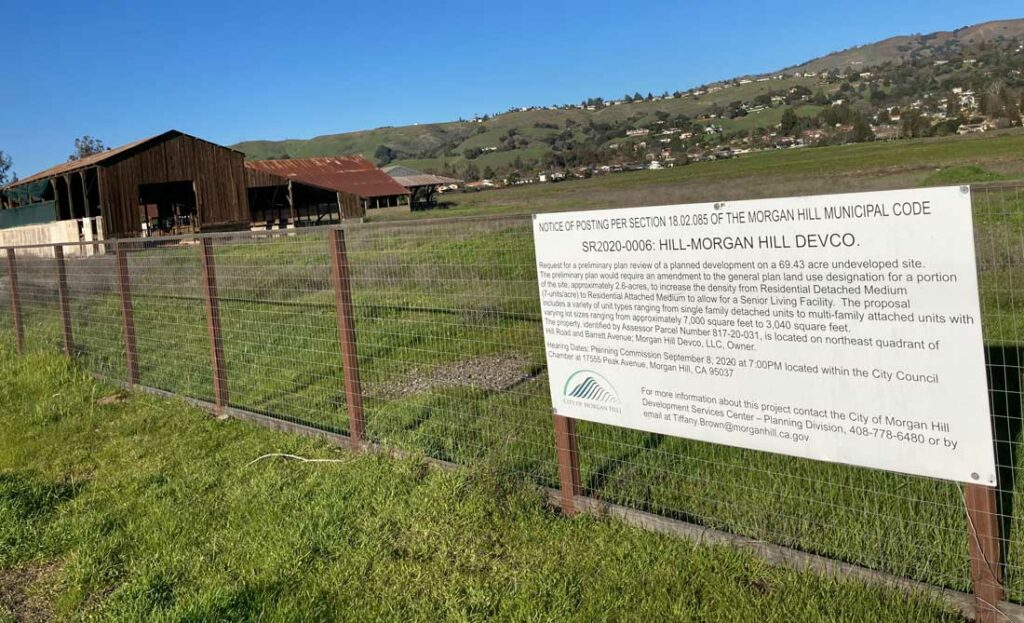SV@Home Executive Director Regina Celestin Williams urged Morgan Hill to make changes to the City’s Draft Housing Element to improve access to public resources for new homes planned for lower-resource areas. In a letter sent to the City Council, Celestin Williams says the city should create a program “to prioritize investment in neighborhoods that have been historically underserved, where incomes are low and where residents have relatively low access to economic opportunities.” The letter also highlights the lack of concrete commitments and measurable outcomes in the City’s implementing programs, and suggests strategies to strengthen the programs for better outcomes.
By Michael Moore | The Morgan Hill Times | January 27, 2023
The City of Morgan Hill recently adopted its General Plan Housing Element, an eight-year roadmap on how the city will meet its projected need for new homes as the area grows.
While city officials and council members—the latter of whom unanimously approved the new Housing Element at the Jan. 24 meeting—are satisfied that the document meets all the requirements imposed by state housing authorities, some observers commented that Morgan Hill’s policies and plans overlook some local demographic and geographic groups.
The long-term planning document lays out how the city will facilitate the building of at least 1,037 new residential units that are needed in Morgan Hill from now through 2031, as determined by the state’s Regional Housing Needs Allocation process, according to city staff.
The new Housing Element covers the period 2023-2031. Before that time frame expires, the state’s 2022 RHNA says Morgan Hill will need to build 262 very low-income housing units; 151 low-income homes; 174 moderate-income homes; and 450 above moderate-income houses.
Morgan Hill is already well on the way to reaching its RHNA goals, and finds itself “in the enviable position” of having much more than 1,037 housing units already in the “pipeline,” says a city staff report.
Currently, there are 1,819 housing units in the pipeline in Morgan Hill—meaning they are already permitted or entitled, or in the process of seeking entitlements, according to Morgan Hill Principal Planner Adam Paszkowski. That’s a surplus of 782 units expected to be built beyond the RHNA number.
The Housing Element is one of nine state-required elements that must be included in every General Plan, says the city staff report. While other elements only have to be updated every 20 years, the Housing Element must be updated every eight years.
“The Housing Element assesses housing needs for all income groups within the community and identifies implementation programs to meet those housing needs,” says the staff report.
City officials have been working on the latest Housing Element since 2021. That work includes more than 40 public meetings and other community outreach efforts, according to city staff.
At the Jan. 24 meeting, Councilmember Marilyn Librers suggested that Morgan Hill should seek to establish more “transportation hubs” so that more of the city’s housing is accessible to public resources. “Many of these (upcoming) projects listed have no transportation,” Librers said.
In a letter to the council, SV@Home—an organization that advocates for affordable housing in Santa Clara Valley—urged Morgan Hill to improve new homes’ access to public resources. The letter—signed by SV@Home Executive Director Regina Celestin Williams—says the city should create a program “to prioritize investment in neighborhoods that have been historically underserved, where incomes are low and where residents have relatively low access to economic opportunities.”
Williams’ letter also suggested the city’s “implementing programs” identified in the Housing Element lack “concrete commitments and measurable outcomes.”
Also keeping a close watch on cities’ Housing Elements and residential needs is the private development industry. Morgan Hill developer Rocke Garcia—who is in the process of developing the New Horizons project on Hill Road—said the local element should focus more on senior citizens’ housing needs. In an email to the council, Garcia said only a small portion of affordable homes developed under the city’s Below Market Rate (BMR) housing program have been sold to seniors.
“A new, complementary BMR program designed specifically for seniors needs to be developed and implemented,” Garcia wrote to the council.
In spoken comments to the council Jan. 24, Garcia noted that of the 320 units planned on the 69-acre New Horizons project, 55 of them will be for seniors.
The periodic drafting and approval of the city’s Housing Element is not a new process to seasoned city officials and planning experts. But council members on Jan. 24 took the discussion as an opportunity to lament that while state authorities impose such housing demands on cities, no state funding is offered to help locals meet the need or keep their public infrastructure intact.
In response to questions from the council, Paszkowski noted that Morgan Hill has “done a great job in the past” in meeting its RHNA requirements.
“A lot of cities are bad players and try to just ignore the problem—and that’s where this is coming from with the state (trying) to fix those bad players,” Paszkowski said.

